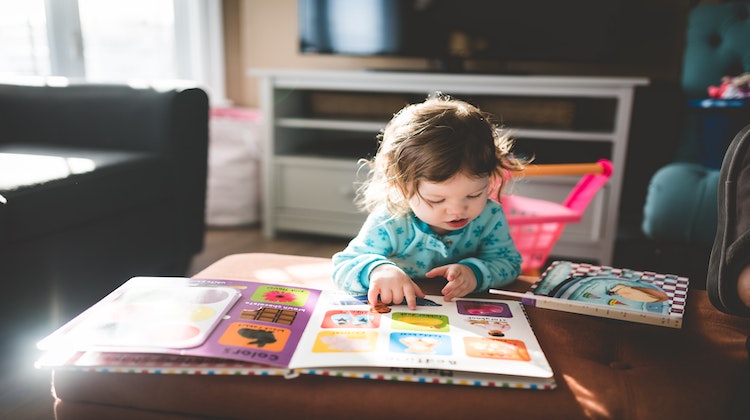Learning a language is not something that happens overnight. It takes time, even dedication, and effort, so it is very likely that our children's motivation will decrease or disappear before reaching the goal. Therefore, it is very important to be alert to trigger the necessary mechanisms that arouse the child's interest. In other words, kids have to desire what they need, so that they can get motivated in this long-distance race.
We can, and should, be the external factor that helps our children achieve the much-desired language development. As a mother and teacher, I wage this battle daily, without a doubt, with more joy than sorrow. It is not an easy task, which gives more value to each milestone reached. I want to share my method, which is actually my principle and without which education would be meaningless.
OBSERVE
Children have their own life, and their individuality is emerging. They need harmony, calm, and peace. It is very important to observe how they feel at all times, to have empathy with them, and to take care of them so that they do not wither and lose vitality. Children don't always ask questions when they don't understand. The world is new to them and they are constantly processing information. Despite being used to novelty, learning can be very stressful. If you observe their reaction, gestures, their eyes... you will know when you should change the activity, sometimes to a simpler one, sometimes to a more challenging one. You can return to the interrupted activity at any other time.
ENCOURAGE CREATIVITY
Fostering their interests is giving them wings to fly, to want to go further. Children are not interested in just talking and listening, they need movement and they need to create. Any tangible creation you may have on your desk will remind you of the moment you created it, and activate the target language in your brain. Their hands are the tools of their brain. Long lists of vocabulary will not help motivate children, but the process of recreating jobs, the city, and routines... will encourage their creativity and desire to know more about the topic they are working on. Time flies when we add pleasure and action. Inventing dances for songs, and gestures,... is also bringing learning to their world of games and movement.
PROVIDE CONFIDENCE
We have to be aware of the difficulty of acquiring a language and never penalize mistakes since it is not synonymous with failure, it is synonymous with progress. The vital force that children have must serve to express themselves, to achieve communicative autonomy. Any attempt to communicate, even inventing words, reflects the children’s need for the freedom to explore. It is essential not to get frustrated. We must support the little ones at all times and applaud their efforts. They are doing it great. Positive reinforcement will pique their interest.
BE PATIENT
'Rome was not built in a day. Everything takes time and stress is a bad travel companion. We must respect the rhythms of children and not insist on something that does not work at a given time. We need to channel all their energy with our patience and repeat as many times as necessary.
RESPECT THEIR INTERESTS
It is us, the adults, that must adapt to their interests and let them freely choose what to do and how to do it at all times. We know what they need, so we can give it to them in different patterns. If the child is moved by soccer, for instance, and we want to work on the topic of food, let's make the perfect menu for a soccer player. Let's find out what their idols do and don't eat.
It is a really precious moment to take an interest in what moves our children at the moment, so that you can get to know each other better and know how we can be more efficient in our helping their learning development.
PERSEVERE
Of course, a high percentage of success is due to the insistence on achieving it. We should not obsess over how much time they will have to invest. We must remember what it means to be a child and how we live in the present (neither future nor past). They enjoy the journey, let's do the same. Let's enjoy the trip so that it is the stimulus for their future. If we play, if we laugh, if we sing, if we enjoy ourselves, if we are happy, we will want to keep on being so. If we learn in this way, we will want to continue learning and the time will come when our children will be able to communicate in the target language.
In conclusion, the best tool is ourselves, proactive parents and teachers. You have to get involved and actively participate in your child's world. Language teaching must be adapted to the interests of the child. This is the motivation for the light switches to lighten their bright future.







